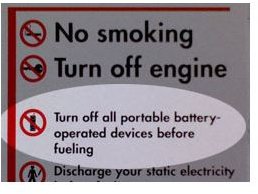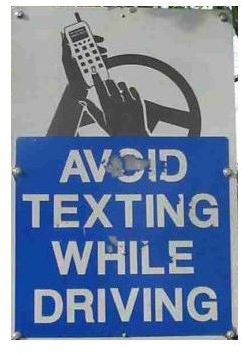Cell Phone Radiation, Risks, and Other Health Hazards
Cell Phones - Then and Now
Not too long ago, cell phones were pretty basic. There was no emailing, no ringtones, no Angry Birds, etc… Back then, scientists did several studies that turned up some disheartening news that cell phones may be linked to some serious health concerns. This of course, turned into a short lived topic of debate, which many people simply wrote off. Still, the convenience of cell phones greatly outweighs any scientific studies to most people, and many heavy cell phone users have perfectly good health. So, is there any difference between those old bricks we used to carry around and today’s smartphones, in regards to health concerns? That is still to this day, a topic of debate.
Scientific Health Conerns
The major health concern of using cell phones, determined by scientists, is that cell phones emit radiofrequency energy waves, or RF waves. The term radiofrequency energy waves doesn’t mean a whole lot by itself, but when you dig deeper, it turns out, that radiofrequency energy waves are a type of radiation. Radiation of course, is nothing that you want to be fooling around with. Nuclear bombs emit radiation, chemical and power plants emit radiation, and… cell phones emit radiation.
The question is, how much radiation do cell phones emit, and is it a directly harmful form of radiation? According to the National Cancer Institute, cell phones alone do not emit radiation. So in other words, a powered off cell phone holds no serious health risks, unless of course, it was used as a weapon and thrown at someone. RF energy radiation enters a cell phone through the antenna whenever data is transmitted or a call is made. The signal that is sent from a phone, to the nearest tower, to the switching center, to another cell phone or land line, and back is what causes the radiation.
However, the cell phone radiation that is created by the antenna can be somewhat minimal or greatly amplified, depending on a cell phone user’s distance from the nearest base station. So when you are roaming, you are probably radiating.
Some other factors that determine the level of radiation are:
- Amount of calls and duration of calls.
- Amount of cell phone traffic within carrier servers.
- Call quality and quality of frequency.
- The size of the handset.
- Whether or not a hands-free device is being used.
Cell phone antennas are not powerful enough to cause a radiation level capable of reaching the entire body. The worry by most scientists, is RF radiation to the brain.
To find a scientific hypothesis true, there must be conclusive, consistent evidence through study to either prove or deny the initial hypothesis. Here are the results of the most significant study on cell phone radiation, which was a collaborative effort by 13 countries all over the world.
Obective: To find whether or not RF energy exposure from cell phones has any association with increased risk of malignant or benign brain tumors, deep tissue damage, or other forms of cancer.
Conclusion: Scientific studies turned up no reasonable or consistent evidence that there was an increased risk of glioma or meningioma, the two most common forms of brain tumors. A small percentage of study participants who were noted as spending the most time on calls showed slight evidence of risk of glioma. But these findings were determined to be inconclusive, because the findings were not directly linkable, and the few test subjects that were studied represent a small part of the population.
Other less significant studies have not been able to prove any signficant indication or health risk of using cell phones.
Other Cell Phone Risks

If you have ever seen a sign at a gas station that prompted you to turn off your cell phone around gas pumps, it may be more of a precaution than a truth. According to the Federal Communications Commission, there is no hard evidence that cell phones can cause gasoline (or diesel) fuel to ignite. Scientific tests and other studies have been inconclusive at proving that cell phones and RF frequencies are even capable of effecting fuel pumps and fuel.
More so however, gas station incidents while on cell phones can be slightly attributed to a build up of static electricity. However, this would have nothing to do with cell phones, and more to do with other factors.
Provable Cell Phone Risk

The most obvious cell phone risk comes via driving while on the phone. It takes no science to prove this point. According to the Human Factors Quarterly Journal, cell phone distraction causes 330,000 injuries each year (2005).
While cell phones do indeed emit RF energy, a form of radiation, there has been no conclusive scientific findings that cell phones pose any health concerns. Gas station warnings seem to be a myth, because there is little to no evidence to support the rumor that cell phones start fires. Finally, cell phones are dangerous, if they are a form of distraction, normally when driving. Luckily there are plenty of hands-free texting apps out there so there’s no excuse for hands-on texting while you are driving.
References
- National Cancer Institute, Cancer.gov
- FCC, FCC.gov
- Accident Info, accidentinfo.com
- Images are screenshots, courtesy of author.
